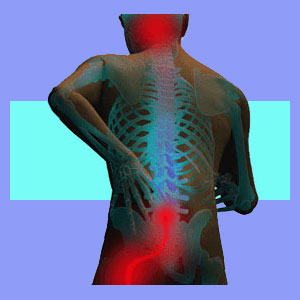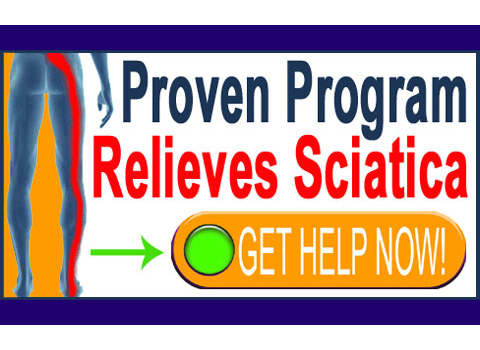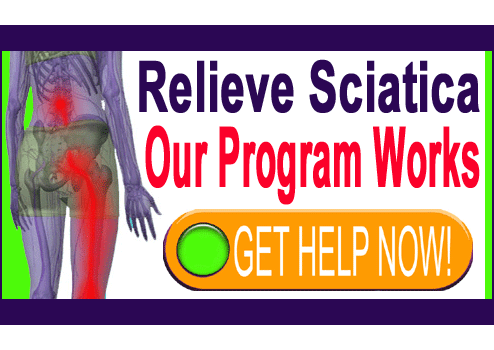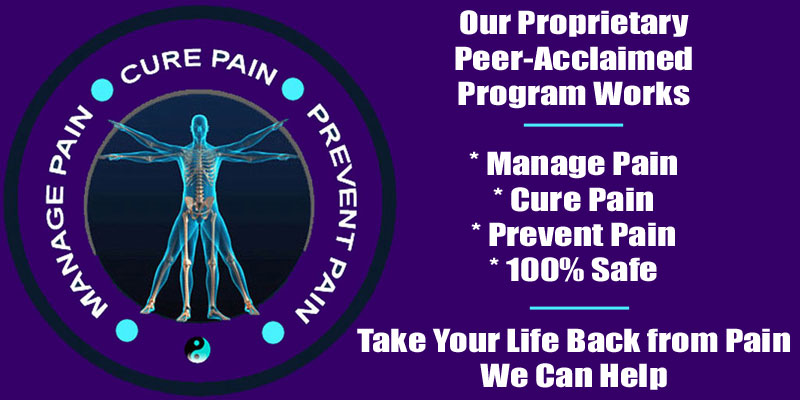
Are you facing terrible sciatica consequences caused by chronic, unresponsive pain? You are one in an army of walking wounded who are suffering each and every day. Sciatica is well known as a treatment-resistant and debilitating health issue, causing many patients to face horrific effects that prevent a normal life.
Sciatica can be cured. The consequences of sciatica can be minimized and even completely resolved with time. However, finding lasting relief depends on some very important and often overlooked factors that every patient must understand. In the meantime, many patients are justifiably concerned with the various manifestations of sciatica and seek out information on web resources just like this one.
This discussion explores the usual and occasional consequences of sciatica. We will also examine how these consequences can be resolved by curing the underlying cause of pain or at least reducing the severity of the symptoms.
Typical Sciatica Consequences
Sciatica has a reputation for causing chronic pain in the buttocks, legs and feet. Remember that lower back pain is not a part of sciatica, although it may occur simultaneously and from a potentially related source. Sciatica can also cause other symptoms, such as burning, tingling, numbness and weakness in affected areas of the lower body. All of these are considered normal expressions of both true spinally-motivated sciatica, as well as pseudo-sciatica.
Pain may be present all the time, may come and go, may be positionally-dependent or activity-related. Pain might range from minor to extreme and debilitating. It is also normal for sciatica to be patterned and predictable, as well as completely random in its presentation.
Usual consequences of sciatica itself include reduced physical functionality, including decreased flexibility and the ability to perform vigorous tasks. It is normal for patients to experience some collateral effects on their life, including occasional insomnia and detrimental effects on work and family. It the patient is athletic, then they will also likely suffer when participating in their favorite fitness pastimes, including decreased effectiveness as an athlete and possibly escalated symptoms.
Collateral consequences of sciatica treatment are often worse than the effects of the condition itself, although most patients do not consider this fact until it is far too late and the damage has already been done. These consequences often include negative effects of drug therapies, dependency on pain medications, damage to spinal tissues from repeated epidural injections and the terrible lingering effects of failed surgery for patients who decide to go the route of invasive care.
Atypical Sciatica Effects
Less common collateral effects of sciatica may occur in a minority of patients. These much more significant consequences may include:
Depression affects many people who suffer chronic pain. While sciatica can not kill you, depression certainly can. Depression is a leading contributor to much more clinically severe health problems and is also a leading reason for suicide and drug abuse.
Incontinence is a possible consequence of severe sciatica and may affect bladder or bowels. Incontinence is often used as justification for the most invasive of all surgical techniques for sciatica symptoms.
Sexual dysfunction may occur due to pain or lack of desire in many patients. However, some patients actually experience complete inability to perform sexually due to neurological reasons. These cases also often necessitate dramatic surgical intervention.
Cauda equina syndrome is possible and might limited patients from standing, walking or using their legs to any useful degree.
Legal disability is rare, but may occur, especially in combination with severe intractable back pain. Once declared disabled, most patients suffer an irreversible downward spiral of health, statistically most often leading to premature death.
Mitigating Sciatica Consequences
Any form of pain will have detrimental effects on health and functionality. This is natural. However, there are ways that most patients can prevent these effects from becoming a tremendous negative influence on their lives:
Try to improve your general health, even if you have pain. Being diabetic or obese are huge problems and might even be to blame for your suffering. If you have both conditions, as many people do, try managing these first and see how your sciatica responds.
Try to abstain from oral pharmacological therapy, as these drugs are toxic and will definitely damage your health in possible permanent ways. Topical, natural and holistic pain management practices are recommended and are just as effective according to patient citations.
Try to avoid sciatica surgery, since statistically, few procedures succeed, especially when judged over timelines of 7 years postoperatively. Sciatica surgery is seldom medically necessary and also seldom successful. Be wary of surgical prescriptions.
Try to avoid dwelling on your pain or the effects of your pain psychologically. Instead, try to find respite with pastimes, family, work, religion or any other positive influence that works for you. Do not rely on alcohol or drugs to distract you. A positive psychoemotional state goes a long way to facilitate a healthy life despite pain, as well as a faster recovery process.
Most importantly, always question the diagnosis of pain that does not respond as expected to treatment. Virtually all treatment-defiant chronic pain is misdiagnosed, but most patients do not consider this truth and hold on to their flawed diagnosis as they go from treatment to treatment without relief.





